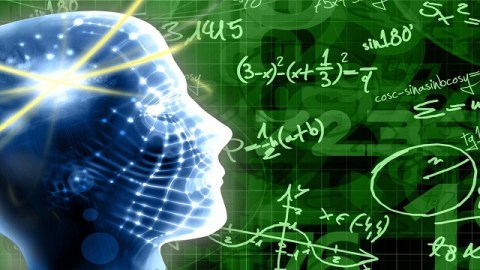It’s All Numbers Up Here: Love and Decision Making

My research for Dirty Minds: How Our Brains Influence, Love, Sex, and Relationships wasn’t all orgasms in brain scanners. As I sifted through the scientific literature on love and sex, and interviewed countless neuroscientists, the idea of “risk and reward processing” kept coming up. What I thought was a discussion about romance kept circling back around to decision-making.
And it was soon obvious why. Many of the brain areas implicated in the neuroimaging studies of love also light up during gambling tasks. Oxytocin, the so-called “cuddle chemical,” is measured almost as often in economic games as it is in pair-bonding studies. Both love and money offer the promise of great reward—but also the potential of overwhelming risks. Are the overlaps coincidence? Could making a decision to open your heart (or your bed) to another person be the same as deciding whether or not put $50 on black? It’s not hard to make an argument in either direction from a scientific perspective. Certainly most would suggest that a romantic partner may be one of the biggest rewards out there. But perhaps those of us with romantic streaks would like to believe that there is something special about love, something that transcends the idea that a love-related decision is simply some complex number-based calculation.
When I made my pilgrimage to the Kinsey Institute for Research in Sex, Gender and Reproduction, I participated in a study that looked specifically about sexual decision-making as a pilot subject. As the fMRI tracked my brain activity, I had to look at photos of rather good looking young men, a number denoting how many sexual partners they had in the last month and a Y/N field that let me know whether they were regular condom users. Then, based on this combination of risks and rewards, I had to determine how likely I’d be to take the fellow home. I made similar decisions about potent alcoholic beverages and equally good-looking foods (with different related risk values, naturally).
Intuitively, making decisions about the young men felt a little different than making a LOTTO pick. Yet, neuroimaging research suggests that love, like any other decision, is all numbers up there. And by there, I mean in the brain. Areas of the brain like the anterior cingulate cortex help weigh all the potential risks and rewards when we meet another person and then give you a push towards a particular course of action.
As lead researcher, Heather Rupp wrote recently on her Mother Nature Dating blog:
“At the expense of sounding unromantic, the magic of finding your soul mate relies on your brain to perform complex cognitive processes like sensory processing, perception, memory, emotion, attention, and the evaluation of risks and rewards. Possible partners relationships have the potential for high rewards, such as companionship, sexual pleasure, and love. There are also possible risks, however, such as heartbreak, sexually transmitted diseases and unintended pregnancies. Your brain is calculating the odds of reward or risk of a partner, just like it would about the cost of a car.”
No, it’s not romantic—but perhaps by wiping the “magic” sheen off love and sex, we can gain better insight into how the brain pushes us towards (and away) from potential matches.
What do you think? Is there something special about love-related decision making?
Photo: pixeldreams.eu/Shutterstock.com





